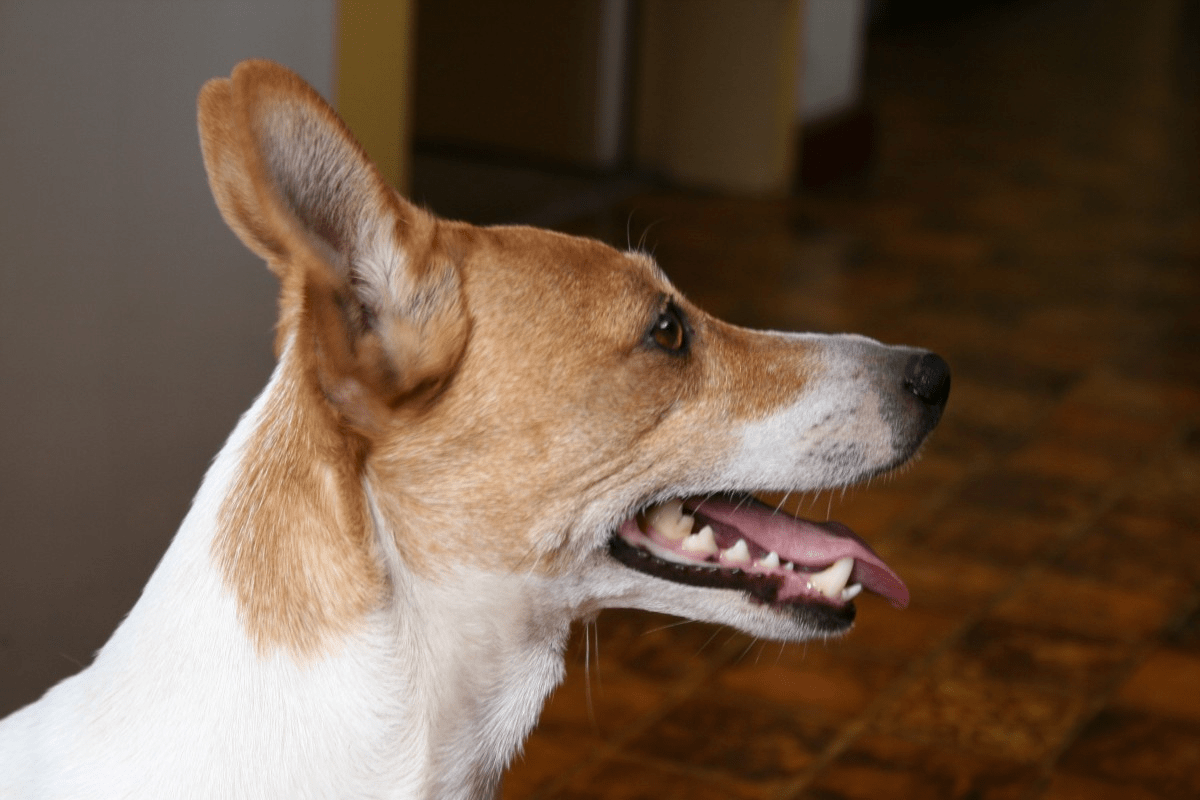The Basenji, often celebrated for its unique characteristics among dog breeds, stands out due to its remarkable quietness and is frequently referred to as the “barkless dog.” Originating from Central Africa, this breed has piqued the interest of dog enthusiasts worldwide with its elegant posture, high intelligence, and independent nature. Unlike most dogs, Basenjis do not bark; instead, they produce a variety of sounds that include yodels, whines, and growls. This trait, combined with their cat-like grooming habits and aloof demeanor with strangers, makes them a fascinating subject of study and companionship. Their history as hunting dogs contributes to their keen sense of sight and smell, further enhancing their appeal to those seeking an active and alert canine companion.
Key Takeaways
- Basenjis are unique dogs with a rich history, known for their intelligence, independence, and the distinct lack of barking, making them an intriguing choice for pet owners seeking a quieter canine companion.
- Prioritizing health and care is crucial for Basenjis, including regular veterinary check-ups and being mindful of breed-specific issues such as Fanconi syndrome; early detection and management can significantly enhance their quality of life.
- Understanding and accommodating the Basenji’s exercise needs, temperament, and intelligence are key to a harmonious living situation; they thrive on attention, mental stimulation, and structured play.
- When considering adding a Basenji to your family, seeking reputable breeders or adoption agencies is vital; they can provide valuable insights, health clearances, and support for new owners.
- The Basenji’s unique characteristics, such as their grooming habits and prey drive, require specific attention and care routines to maintain their health and happiness.
- Engaging with the Basenji community through clubs or online forums can offer additional support, advice, and friendship for both new and experienced Basenji owners.
Breed Overview
History
The Basenji breed traces its roots back to ancient Egypt. Historians have found their representations in hieroglyphs and artifacts, suggesting their esteemed status in early civilizations. They were companions to pharaohs, depicted alongside their masters in tombs and on scrolls.
This dog breed made its way to Europe and America much later, facing significant challenges due to its unique breeding requirements. The Basenji’s introduction outside its native continent required careful planning and dedication from breed enthusiasts.
In traditional African societies, the Basenji played crucial roles. They were hunters, using their keen senses to track game. Villagers also relied on them for pest control. Their agility and intelligence made them invaluable in daily life.
Physical Characteristics
The Basenji boasts a unique appearance that sets it apart from other dog breeds. It is small to medium in size, with coat colors ranging from black and white to brindle and red. Its most distinctive feature is the tightly curled tail, resting gracefully against its back.
They have a muscular build and are incredibly athletic, showcasing remarkable agility and speed. This makes them excellent candidates for various dog sports.
One of the most intriguing aspects of the Basenji is its vocalizations. Unlike other dogs, they cannot bark. Instead, they produce a yodel-like sound known as a “baroo.” This unique trait adds to their exotic appeal.
Personality and Temperament
The Basenji’s personality is marked by independence and intelligence. These traits make them both a challenge and a joy to train. Owners must be patient but will find the process rewarding as they develop a strong bond with their pet.
Their strong prey drive can affect interactions with other pets and animals. Early socialization is key to managing this instinct effectively.
Despite their independent nature, Basenjis are affectionate with family members. They show loyalty and love towards those they consider part of their pack.
Health And Care
Common Health Issues
Basenjis are known for their keen eyesight and alertness, but they also have specific health challenges. Fanconi syndrome, a kidney disorder, is notably prevalent in the breed. Hip dysplasia, an abnormal formation of the hip socket, can also affect them. These conditions underscore the need for regular health screenings and genetic testing for potential Basenji owners.
Preventive measures are crucial to maintaining a Basenji’s health. A balanced diet and consistent exercise regime can significantly reduce the risk of these genetic conditions. Regular visits to the vet for check-ups and vaccinations are equally important.
Dietary Needs
Basenjis have high energy levels that require a well-balanced diet rich in nutrients. Foods high in protein support their metabolism and help maintain muscle mass. However, certain foods should be avoided, including those with artificial additives or fillers.
Portion control and a regular feeding schedule help prevent obesity—a common issue that can lead to other serious health problems. A combination of dry kibble and wet food often works best, providing both nutrition and hydration.
Exercise Requirements
Daily physical activity is non-negotiable for a Basenji. It keeps them fit, manages their energy levels, and prevents boredom. Activities that mimic hunting behaviors, such as tracking games or agility training, are particularly beneficial. They not only cater to the Basenji’s instincts but also strengthen the bond between dog and owner.
However, due to their strong prey drive, it’s advised to avoid off-leash activities in unsecured areas. Securely fenced yards or dog parks are ideal environments for them to explore safely.
Grooming
The Basenji’s short coat means they shed minimally and require less grooming compared to other breeds. Regular brushing helps remove dirt and loose fur, while occasional baths keep their skin healthy. Nail trimming should be part of their grooming routine to prevent discomfort and mobility issues.
Their natural grooming habits contribute significantly to their overall cleanliness, making them relatively low-maintenance pets in terms of grooming needs.
Living with a Basenji
Training and Socialization
Basenjis possess an independent streak that makes early socialization and consistent training crucial. Owners should employ positive reinforcement techniques, such as treats and praise, to encourage desirable behaviors. These barkless dogs respond well to rewards, making patience and creativity key in their training process.
Training a Basenji can be challenging due to their independent nature. They may not always follow commands immediately, requiring owners to be patient and inventive with training methods. Consistency is vital in helping these small dogs understand what is expected of them.
Environment
The ideal living conditions for a Basenji include access to secure outdoor spaces where they can explore without the risk of getting lost or injured. A fenced area is essential for keeping them safe while allowing them the freedom to move around. Apartment living can suit a Basenji as long as they have regular opportunities to exercise outdoors.
Owners should avoid leaving their Basenjis alone for extended periods. These intelligent dogs can become bored and potentially destructive if not given enough attention or stimulation. Providing an environment that caters to their exploratory nature, yet keeps them protected from harm, is crucial for their well-being.
Activities They Enjoy
Basenjis thrive on activities that stimulate both their mind and body. Scent work, lure coursing, and interactive play are among the activities that keep them engaged and happy. Engaging in these activities strengthens the bond between Basenjis and their owners, ensuring a harmonious relationship.
Community events or dog sports offer excellent opportunities for Basenjis to showcase their talents and socialize with other dogs. Participation in such events not only provides mental and physical stimulation but also helps in curbing any behavioral issues stemming from boredom or excessive energy.
Breeder Advice and Adoption
Choosing a Breeder
When looking to welcome a Basenji into your home, finding a reputable breeder is crucial. These breeders prioritize the health and well-being of their dogs. They perform thorough health screenings and provide potential pet parents with genetic testing results. This transparency helps in anticipating any future health concerns.
It’s important to ask detailed questions about the puppy’s lineage, health history, and temperament. Understanding these aspects can give insights into how well the puppy will integrate into your home, especially if you’re familiar with living with a Basenji.
Visiting the breeding facility is another step not to be overlooked. It allows you to see the conditions in which the puppies and their parents are kept. You can observe firsthand how the breeders interact with their dogs. This visit also offers a chance to meet your potential new family member and its parents, giving you a glimpse into your future puppy’s personality and behavior.
Adoption
Adopting a Basenji from rescue groups or shelters comes with its own set of rewards. It gives a dog a second chance at life in a loving home. Many Basenjis in these settings are there through no fault of their own and can make wonderful companions.
Before adopting, it’s vital to understand the breed’s specific needs and any challenges they might present. This preparation ensures that you’re ready to welcome them into your home without major surprises.
Rescue organizations often have older Basenjis available for adoption. These dogs may be calmer and already house-trained, making them ideal for those looking for less demanding pets. Adopting an older dog can also be incredibly rewarding as you give them a loving home for their golden years.
Misc.
Popular Names
Basenjis, hailing from Africa, often carry names that reflect their rich heritage. Names like Congo, Zulu, and Safari are common among these spirited dogs. Owners also favor names that capture their pet’s personality traits. For instance, “Mischief” suits their playful nature, while “Dash” reflects their speed and agility. Among Basenji enthusiasts, names such as Bella, Max, and Layla foster a sense of community and belonging.
Fun Facts
Basenjis are known for their cat-like grooming habits. They often clean themselves meticulously, much like a cat would. Their curiosity can lead them into amusing situations, endearing them further to their owners. A few have even made it into pop culture or were owned by historical figures, showcasing their timeless appeal. Their unique genetic makeup has made them subjects of scientific research, providing insights into canine genetics and health.
Common Myths
Contrary to popular belief, Basenjis are not completely silent; they possess a range of vocalizations including yodels and growls. The myth of their aloofness is also misleading. With proper socialization, they show great affection and loyalty towards their family members. The idea that Basenjis are untrainable is false. They can learn commands and tricks with patience and the right training approach.
Most Similar Breed
The Basenji shares several traits with other sighthounds and primitive breeds in terms of temperament and needs. The Shiba Inu, for example, exhibits comparable independence and grooming habits but differs in its more vocal nature. The Pharaoh Hound is another breed with ancient origins sharing similar physical characteristics with the Basenji but tends to be more outgoing with strangers and small animals.

Closing Thoughts
The Basenji, with its unique characteristics and history, presents a fascinating option for potential dog owners. This breed requires specific attention to health, care, and socialization to thrive within a family environment. Owners must commit to understanding their needs, including regular exercise and mental stimulation, to ensure a harmonious living situation. The process of selecting a Basenji involves careful consideration of breeders or adoption options, emphasizing the importance of responsible pet ownership.
Encouraging further exploration into the Basenji’s world benefits both the dog and its human companions. Prospective owners are urged to delve deeper into research and connect with reputable sources for information. This commitment not only enhances the bond between pet and owner but also promotes the well-being of this distinguished breed. For those intrigued by the Basenji’s charm, taking the next step towards responsible ownership can be a rewarding journey.
Frequently Asked Questions
What is the lifespan of a Basenji?
Basenjis typically live between 12 to 16 years. Proper care, a healthy diet, and regular veterinary check-ups can contribute to a longer lifespan.
How much exercise does a Basenji need?
A Basenji requires moderate exercise. Daily walks combined with playtime are sufficient to keep them physically and mentally stimulated.
Are Basenjis good with children?
Basenjis can be good with children if properly socialized from a young age. However, their high energy and playfulness require supervision around younger children.
Is it hard to train a Basenji?
Training a Basenji can be challenging due to their independent nature. Consistency, patience, and positive reinforcement techniques are recommended for best results.
Do Basenjis bark a lot?
No, Basenjis are known as the “barkless dog.” Instead of barking, they make unique sounds such as yodels, whines, and screams.
What health issues are common in Basenjis?
Common health issues include Fanconi syndrome (a kidney disease), hip dysplasia, and certain eye conditions like progressive retinal atrophy.
Where can I adopt a Basenji?
To adopt a Basenji, consider reaching out to breed-specific rescues or shelters. Reputable breeders may have adult dogs available for adoption.








0 Comments